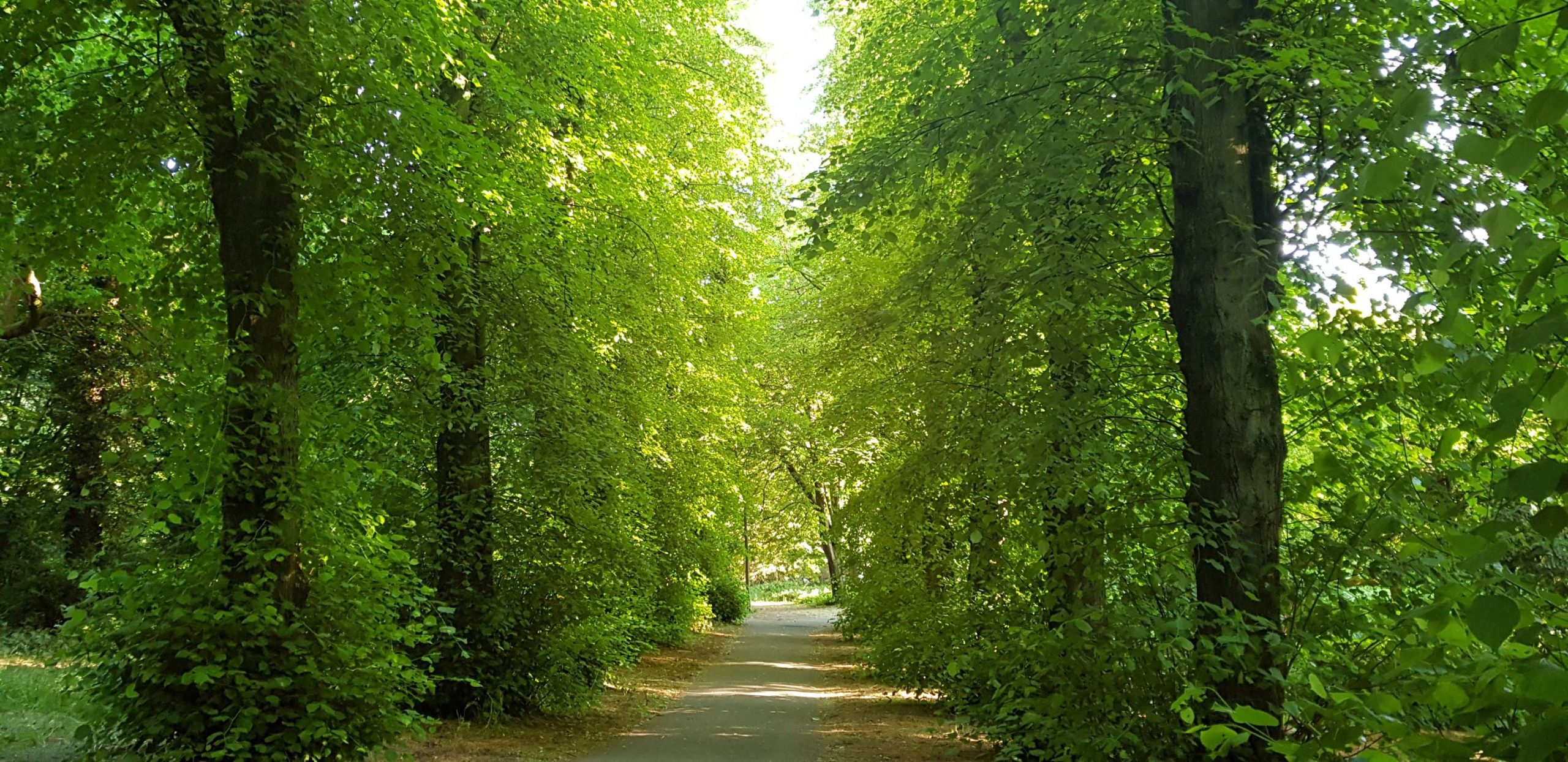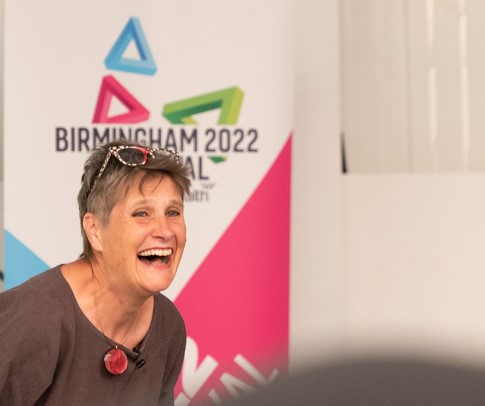Written in lockdown from the spring equinox (79 deaths) to the summer solstice (128 deaths)

The summer house in our garden has become my writing place. At one time, I used to write in the study, our converted loft, but not anymore. The coronavirus lockdown means school is no longer a place but a series of emails. Consequently, the loft has been taken over. It has become the classroom and music room (and place for the Xbox, natch) while I have moved to the wooden shed at the bottom of the garden.
As I sit in my summer house, the blackbirds and wood pigeons are singing. I can hear children playing from somewhere in the mid-distance – between number 56 and 68, I would guess. Sometimes I hear a violin from number 72. Weeks ago, there would have been ambulance sirens, but those come less often now. I look back at our terraced house, through the fruit trees, over my son’s goal post and the homes of our neighbours snuggled down the street.
This is my place. And it has changed during lockdown. Our road now has a WhatsApp group which means I know food has been collected from our doorsteps and taken to the foodbank. Shopping has been dropped off at the homes of the sick. Plants have been shared and libraries of books have been left on the little brick walls outside our houses. Now, when I look down our street, I don’t just see a row of terraced houses, I see kindness.
This is my place and I notice that, in many ways, my place has shrunk. I used to think of Kings Heath, with it rows of terraced houses and useful shops, as the outer edge of the neighbouring suburb of Moseley, where my son went to school and whose U15s cricket team I manage. There was never a day when I didn’t go into Moseley and so I felt as though I lived in Moseley/Kings Heath. But those days seem a long time ago and Moseley seems like somewhere else. My place is smaller now.
Even the High Street seems some distance away. I’m sure Asda, Smith’s and Wilko are still there, but I haven’t walked eastward and seen them for weeks. Each day in lockdown, I have walked west. I have taken my sadness, my peace, my worry or my joy to the trees; to Kings Heath Park with the oaks and poplars and silver birch. And I have walked down the lane, scented with cow parsley, to the neighboring park of Highbury. I have seen it change from the pink of April to the blue of May and the yellow of June. I have found an avenue lined with lime trees, like a nave in nature’s cathedral. Each day I have walked down that aisle saying Mary Oliver’s words “I am a bride married to amazement” in renewed wonder at the beauty just yards from my door.
So now, as I sit in my summer house, I no longer imagine my home as a place near the number 50 bus stop. My home is in a village on the edge of a meadow. It’s down from the wood, across the way from the pond where ducklings hatch and marsh irises bloom.
Church as place
Church used to be a place. We have all known since Sunday school that the church is the people, not the building. But the fact that the people only ever met in a building meant the whenever we talked about “going to church” we meant going to that place with a steeple or a bell. Not anymore. Our building opens once a week on a Thursday for the food bank. Otherwise, those that can – which I’m painfully aware isn’t everyone – meet through Zoom.
To my surprise, it works. In amongst the glitches and freezes and struggles with mute, we manage to pray. We can’t sing together. Even saying the grace together is tricky. Yet somehow that doesn’t detract from the simple experience of being a people together in prayer.
In many ways being released of “place” has made thing easier. For the past four years or so, we haven’t had a regular vicar, so we have exhausted ourselves either finding a stand-in priest (so we can have communion) or devising a service ourselves as the next best thing. Without a place, we can’t meet for communion anyway – so that sorts out the need for a priest at a stroke.
It sorts out another problem too. We are actually two churches that came together because the church can no longer afford to have a priest in every parish. The two congregations have tried to hold joint services but in practice, because the services have been in either one building or the other, one congregation has always been host and the other guest. By removing “place” we have been able to meet for the first time on equal terms.
All of which makes me wonder if we’d be better off without a building. Can we be a people without a place?
There are no easy answers to that one. The community has been formed through place – through the parishes and the buildings that stand proudly in each one. At the start of lockdown, I drove down to our church building in Balsall Heath with a boot load of food for the foodbank. There was Ivor tending the garden, Ann at the door with her apron on and Theo, my Godson, loading a trolley with food. How I had missed them! I missed them because they are amongst those who can’t join us on Zoom. I missed those ways of being together that are about tea and welcome rather than words. I missed the place because that’s where we feed the hungry, say farewell to the souls of the departed and share the seasons of our lives through song.
If we want to do those things – which we do – then having a place helps. But in the effort to maintain a place, with the history of expectation that goes with it, we lose our simplicity. Instead of serving us, our buildings become heavy weights of policy, finance and quotes for leaking roofs. I have no idea when we will return to our place or how I will feel when that happens, but I guess it won’t be like sinking back into a comfy chair. The affection for the organ, the sanctuary and bread and wine upon the altar, will be underpinned by a disturbing question. In holding onto our place, have we lost something more precious along the way?
Work as place
For the past 18 months, I have felt ambivalent about my place of work – London. I work for ScreenSkills, an organisation with goals dear to my heart, not least because it opens up careers in the screen industries to those who have been excluded in the past.
Even so, on my train rides down to London, I would look back with nostalgia at my home city of Birmingham. I would remember the days when I worked in the West Midlands as a journalist, combing through the region and crafting its stories. I would look wistfully on the days when I was an ambassador for Birmingham’s beautiful library, worked alongside the Grand Union Canal, or listened to the waves of protestors from an office in Victoria Square. I mourned the sense of belonging I had enjoyed through working in the heart of Birmingham for more than two decades.
For the past three months, I have imagined the city centre as still. I have assumed that stillness was either eerie or tranquil, depending on your point of view. I have imagined a thick quiet in the air where once there was the clacking of heels crisscrossing Pigeon Park and dodgem-style bumps of shoppers in the Bull Ring. (Like, I said, I’m guessing). In a way, there’s nothing for me to mourn anymore, because that hubbub of activity to which I once belonged, is no longer there. ScreenSkills, too, is of no fixed abode. We have a conceptual abode – a memory, an address that’s listed on Google and with the Charity Commission. But the daily reality is that we’re a community of people united by cloud, through purpose, not place.
In many ways, I like work better. We have an all-staff meeting each Friday, over Zoom, where we play games and hang out in breakout rooms. I no longer feel like a person commuting in from the regions but an equal member of the team. We ask the question: “Do we even need a place?” (No answers yet.) And while we’re asking that, I know that Birmingham-based businesses are asking the same.
So what happens when work is about purpose not place? What happens to cities where that work once took place? Will those who worked in offices ever return? And if we won’t, what will happen to our city centres? Will they become places of leisure more than industry? A place we go to change buses, try on clothes and go to the theatre, rather than hang out with colleagues in the nine to five? And if that happens, what will happen to the buildings? What will happen to the coffee houses that service them? If council meetings no longer need a council chamber, will there still be protests in Victoria Square?
As I reflect upon this, my picture of a city starts to change. Once if you named a place like, “Birmingham” or “Manchester” I would picture the centre with suburbs around it. Now, when I imagine Birmingham, I begin to think of a series or neighborhoods, linked like a web rather than connecting to a place with middle. And where once I used to think of goods and services as “made in Birmingham”, now I picture their origin in homes – homes that could be anywhere. With some sadness, I see my city as its residential streets rather than the industry that was once at its core.
Place and belonging
And so, as I sit in my place at the bottom of the garden, watching the spring equinox slowly turning into the summer solstice, I notice that my inner world is turning as the places turn around me.
Places are guardians of our memories. They are our photograph albums, the soundtracks of our lives. When our places change, our connection changes with them. Being displaced has changed my imagination around my home, my church and my Birmingham and so my sense of belonging is changing too.
Some of those changes are sweet, like the fur lining of a winter coat. Others are quite disturbing. Comfortable or not, there is nothing to be done, except resist the temptation to hold onto the old ways of belonging or grasp prematurely for new ones. The old places and my attachments to them must fall away. The new belongings will come. They will come. They will surely come. I learnt this from the trees.
